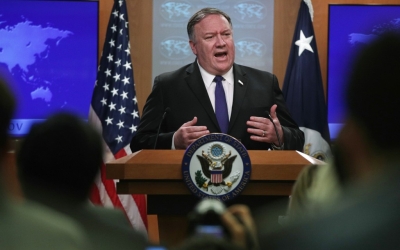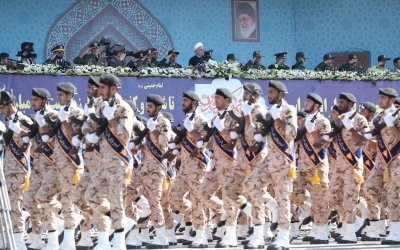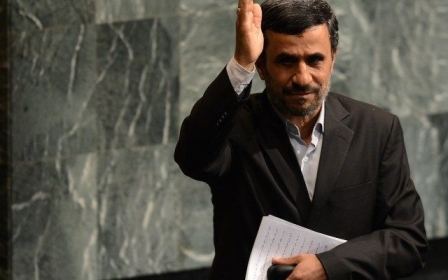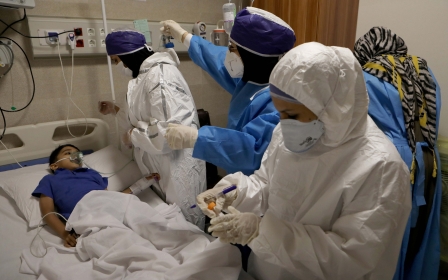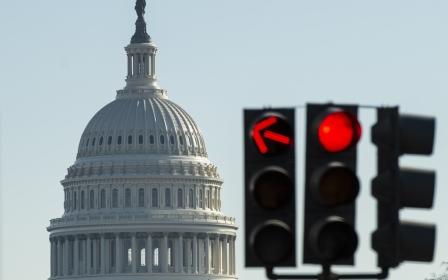Brian Hook: Five key moments from outgoing US envoy for Iran
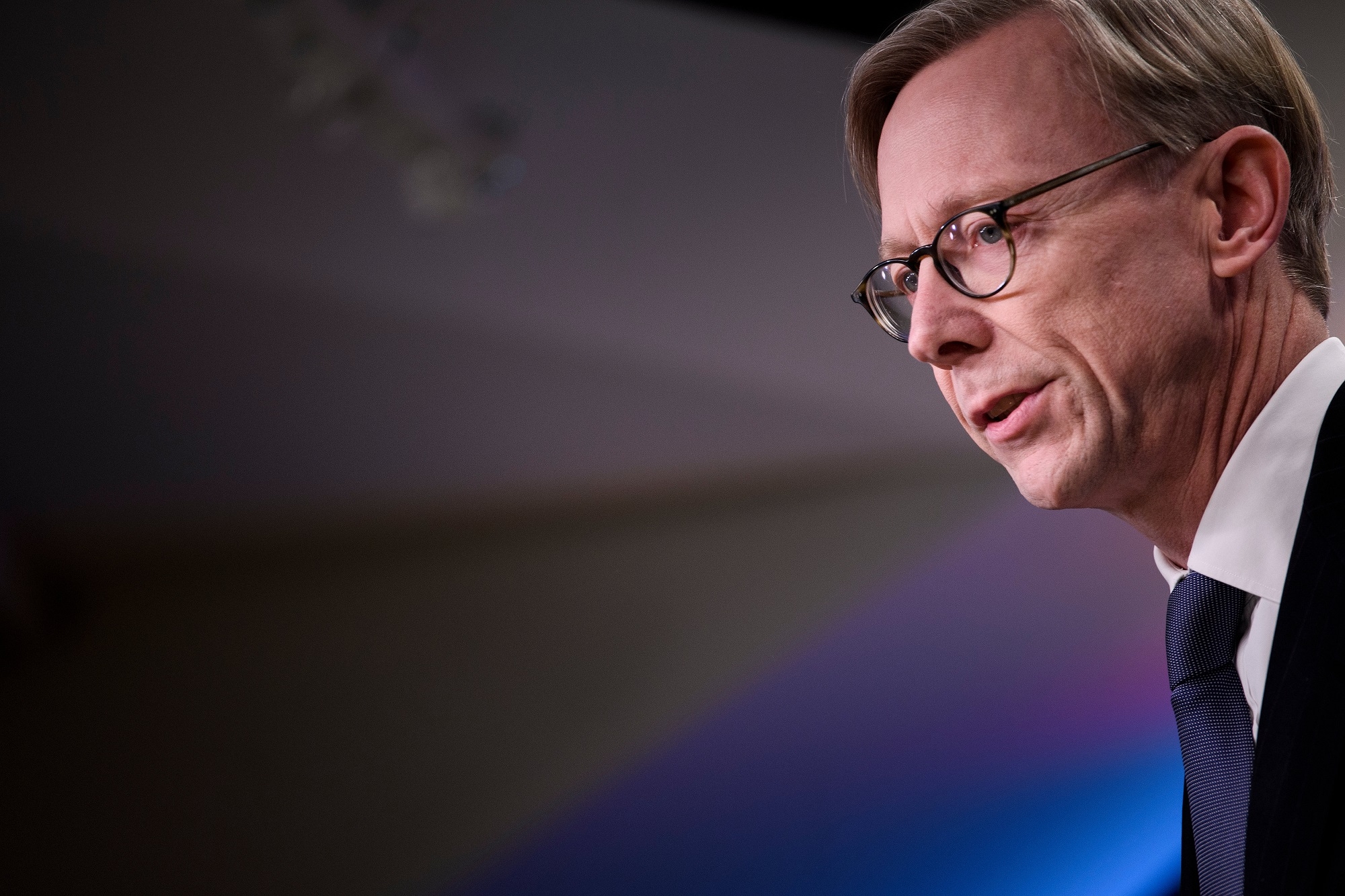
Senior American diplomat Brian Hook, one of the architects of Washington's recent policies against Iran, is leaving the Trump administration to pursue opportunities in the private sector, US Secretary of State Mike Pompeo announced on Thursday.
Hook was appointed as US special representative for Iran in September 2018, weeks after President Donald Trump nixed the multilateral deal that saw Tehran scale back its nuclear programme in exchange for lifting sanctions against its economy.
For about two years, Hook oversaw the US administration's "maximum pressure" campaign that piled on sanctions against various economic sectors and individuals in Iran.
He will be replaced by Elliott Abrams, the hawkish envoy for Venezuela, who will oversee Washington's fraught relations with both countries going forward.
In a statement on Thursday, the State Department praised Hook, saying he "has achieved historic results countering the Iranian regime."
To assess his tenure, which saw tensions rise to the verge of military conflict with Iran, MEE revisits key moments from Hook's time at the State Department.
Saying 'military option is always on the table' with Iran
Hook leaves the department as Secretary of State Mike Pompeo gears up for a major diplomatic battle over extending the United Nations' arms embargo against Tehran, which is set to expire in October.
Late in June, as Pompeo was addressing the UN to make a case against lifting the ban on conventional arms sales to Iran, Hook was in Israel drumming up support for the administration's position.
In an interview with Israel's Channel 13, he said Trump was willing to take military action against Tehran to prevent it from developing nuclear weapons.
"We have made very clear - the president has - that Iran will never acquire a nuclear weapon, and the military option is always on the table," he said.
In a joint news conference with Prime Minister Benjamin Netanyahu, Hook called on the international community to extend the embargo, accusing Iran of having a "secret programme to develop nuclear weapons."
Offering money to captain in bid to seize Iranian tanker
Last year, an Iranian oil tanker caused a diplomatic row between Washington, London and Tehran.
In July 2019, the British navy captured the ship in Gibraltar under the suspicion that it may be moving oil to Syria - which was banned under European sanctions against Damascus.
Iran retaliated by holding a UK-flagged ship in the Gulf as tensions grew between the two countries. Eventually, the British government decided - against Washington's protests - to release the Iranian tanker after Tehran vowed that the oil was not going to Syria.
In September, The Financial Times published a report saying that Hook had emailed the ship's captain, Akhilesh Kumar, promising millions of dollars if the tanker were brought to a place where the US could seize it.
"With this money you can have any life you wish and be well-off in old age," Hook wrote in a second email to Kumar. "If you choose not to take this easy path, life will be much harder for you."
The State Department confirmed the story, which Iranian Foreign Minister Mohammad Javad Zarif denounced as "outright blackmail".
"We have conducted extensive outreach to several ship captains as well as shipping companies, warning them of the consequences of providing support to a foreign terrorist organization," a State Department spokesperson told AFP at the time.
Suggesting that killing Soleimani saved "hundreds" of American lives
The United States and Iran were on the cusp of all-out war early in 2020 after a US strike killed top Iranian general Qassem Soleimani, the head of the Quds Force, which oversees the regional activities of the Islamic Revolutionary Guard Corps (IRGC).
Washington's justification for the attack was that it was defensive in nature - a move to neutralise an "imminent threat" that Soleimani posed to US troops in Iraq after Iranian-backed Iraqi groups attempted to storm the American embassy in Baghdad.
In Washington, Trump's Democratic rivals criticised the killing, casting doubt over the claim that Soleimani - who was targeted shortly after arriving at the Iraqi capital on 2 January - posed an immediate danger to American soldiers.
"We're told it was an imminent threat. I'm not sure I'm convinced about that," Congressman Eliot Engel, who chairs the House Foreign Affairs Committee, said after the killing of Soleimani.
Hook became de-facto spokesman for the administration's argument, going so far as saying the strike on Soleimani may have saved the lives of hundreds of Americans.
"We managed the attack on our embassy in Baghdad by Iranian and other terrorists," he said during a 10 January briefing.
"And then you also had the elimination of Qasem Soleimani, also a defensive strike to prevent him from attacking hundreds of Americans – potentially hundreds of Americans in a large-scale attack."
Earlier that week, he deployed a similar argument when asked by NPR's Ari Shapiro about the nature of the threat that Soleimani posed.
"If we had not taken action and hundreds of Americans were killed, we would be having a conversation now where you would be asking me, why didn't we take out Qassem Soleimani?"
Threatening Soleimani's successor with 'same fate'
It is uncommon for diplomats to issue public death threats against foreign government officials, even if they are adversaries.
But Hook did not hesitate in warning that the United States could kill Esmail Ghaani, who succeeded Soleimani as the new head of the IRGC's Quds Force.
"If he follows a similar path of killing Americans, he will meet the same fate, because the president has made clear for years that any attacks against American personnel or interests in the region will be met with a decisive response, and the President demonstrated that," Hook told Saudi-owned Asharq al-Awsat less than a month after the killing of Soleimani.
Ghaani had adopted a combative tone after stepping into Soleimani's role, threatening to avenge the Iranian general.
"They hit General Soleimani in a cowardly act, but there are freedom-seekers across the world who want revenge for him with God’s help, and God willing, we will hit his enemy chivalrously," Ghaani said.
Praising Saudi Arabia's oil production when asked about its human rights record
Throughout the past two years, Hook made it a point to call out Iran's human rights abuses and crackdown on dissent.
"The Iranian people want a more representative government, a government that does not rob them blind, that supports their human rights, their economic rights, their freedom of expression, freedom of assembly," he said during a briefing in November 2018.
"These are all rights that the United States wants for the Iranian people. We think they deserve a much better way of life."
At the time, the Trump administration was facing a barrage of criticism over its efforts to shield Saudi Arabia's rulers from calls for accountability after the killing of Jamal Khashoggi.
A journalist confronted Hook over the State Department's lack of criticism of Saudi Arabia's human rights record in contrast to the envoy's incessant citing of abuses in Iran.
Hook responded by praising the kingdom for its oil production levels.
"We do not share interests or values with the Iranian regime," Hook said.
"We have asked Saudi Arabia to increase the production of oil while we take off Iranian oil from the market, and Saudi Arabia has been very helpful to ensure an adequately supplied oil market during this period where we have seen dramatic reductions in the import of Iranian crude as part of our maximum economic pressure campaign."
Middle East Eye propose une couverture et une analyse indépendantes et incomparables du Moyen-Orient, de l’Afrique du Nord et d’autres régions du monde. Pour en savoir plus sur la reprise de ce contenu et les frais qui s’appliquent, veuillez remplir ce formulaire [en anglais]. Pour en savoir plus sur MEE, cliquez ici [en anglais].


